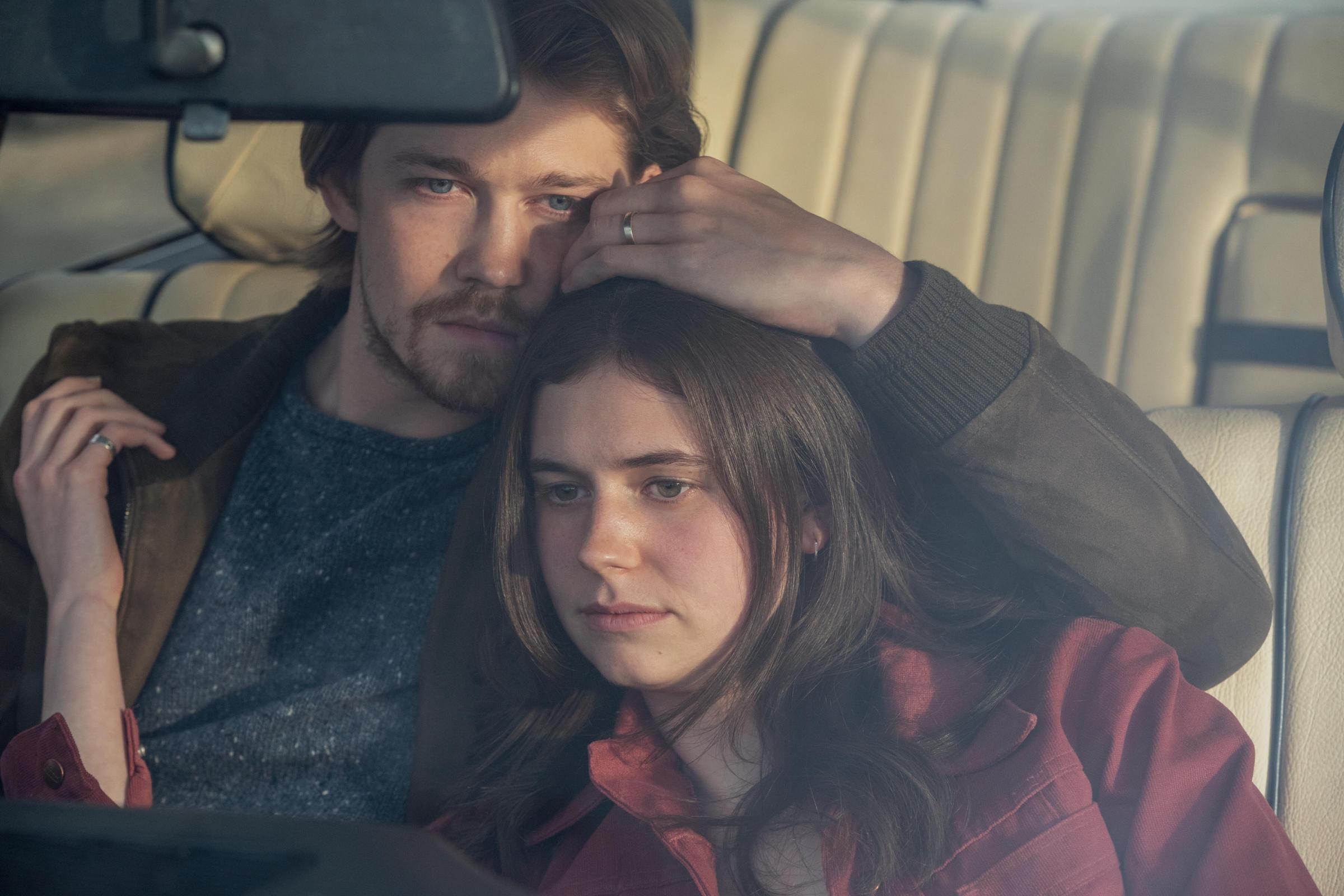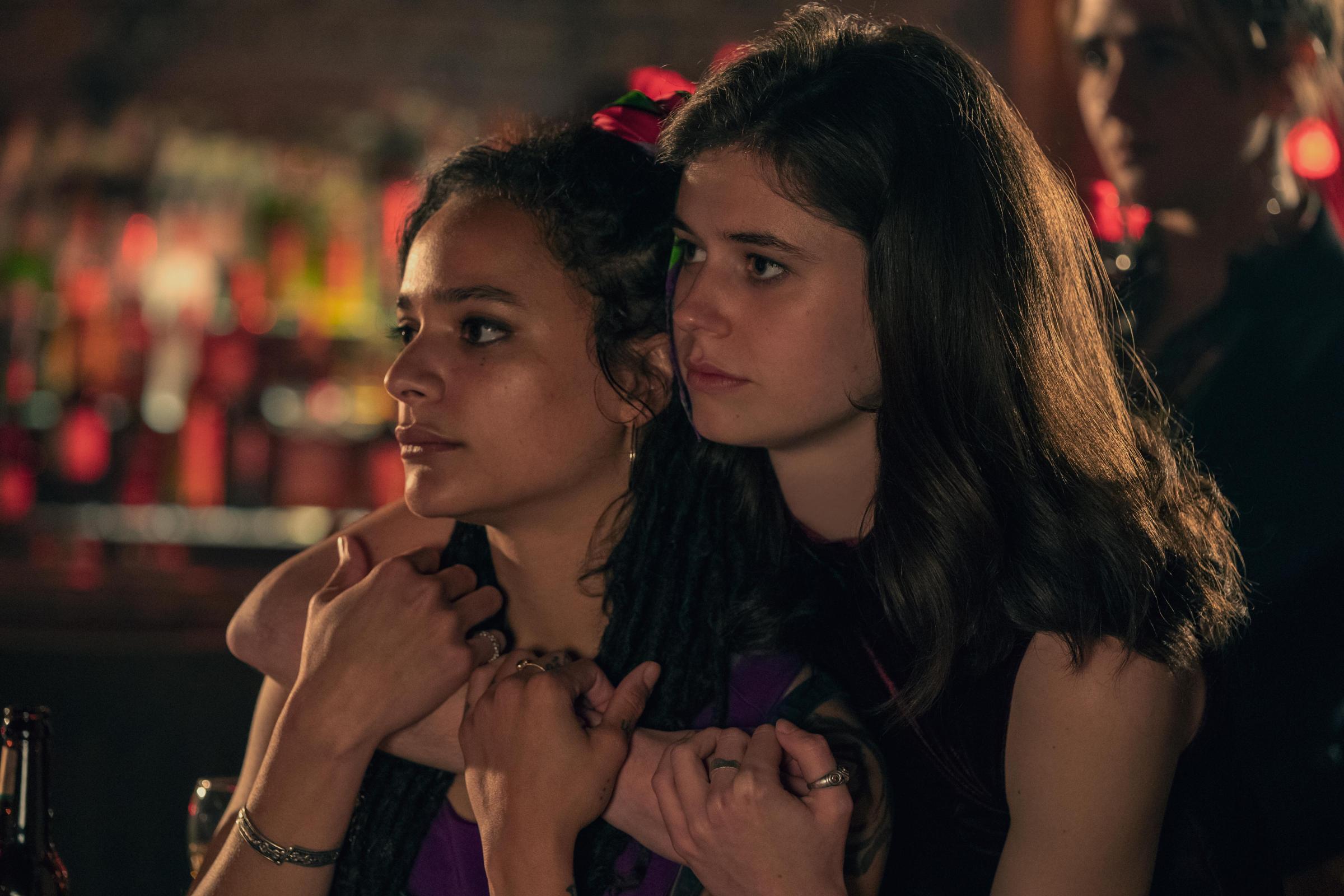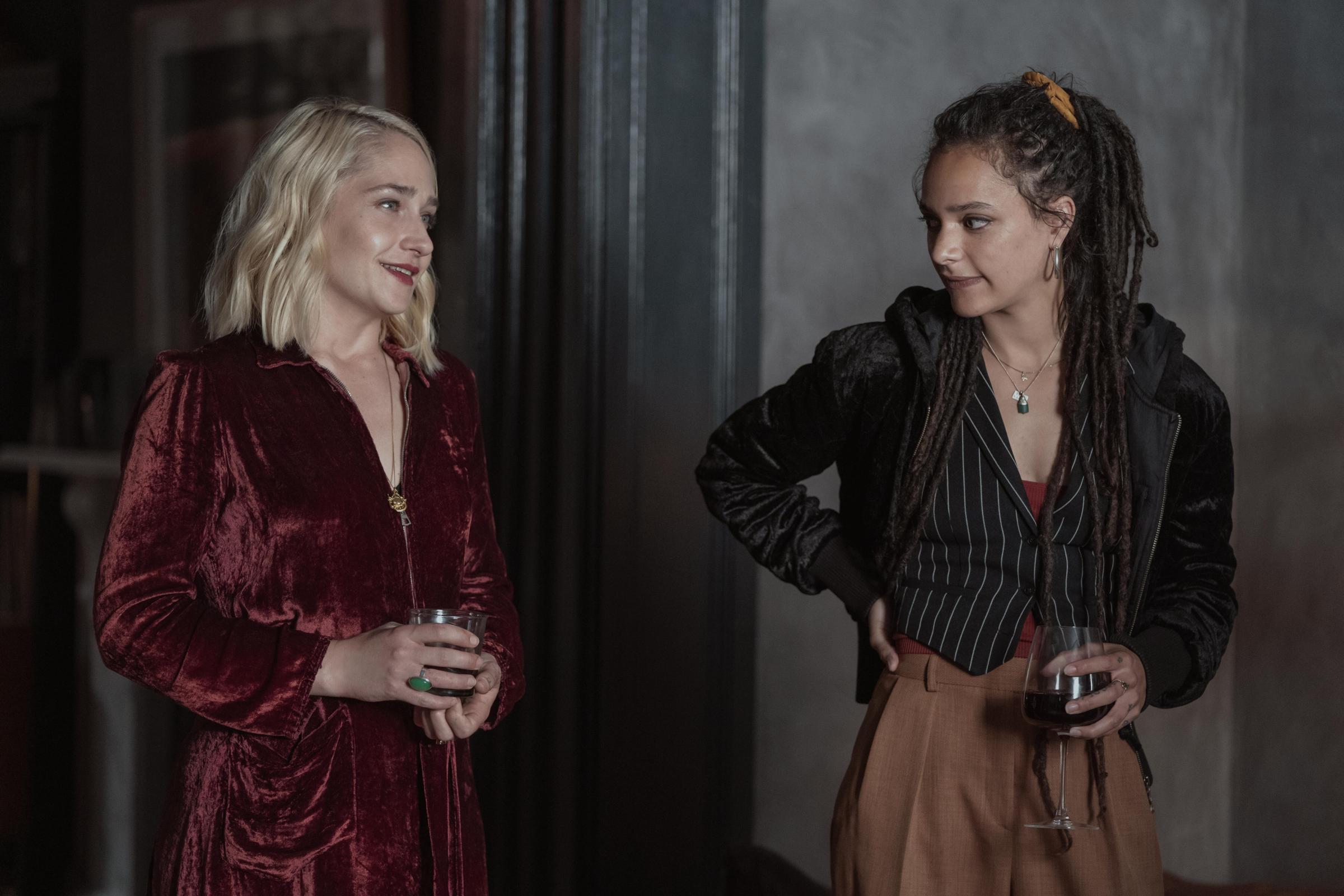So much has been said about Sally Rooney, in the mainstream press as well as in literary circles, that it can feel as though she’s been part of the discussion forever. Whether you consider the 31-year-old Irish author to be the first great millennial novelist or a writer of middlebrow romances seeded with trendy anticapitalist musings, it’s more than likely that if you keep up with contemporary literature, you’ve formed an opinion on her work. Which makes it hard to believe that her debut novel, Conversations With Friends, appeared just five years ago.
Now, inevitably, that book is a Hulu series, from the same team that adapted Rooney’s Normal People for the streaming service in 2020. Over 12 luxuriously paced half-hour episodes, co-produced with BBC Three and slated to premiere on May 15, Conversations follows a pair of college girls in Dublin who develop a mutual infatuation with a glamorous, 30-something married couple. Simple in structure and staging but rich in psychological insight, the show took me back to a time—not so far in the past, but eons ago in discourse-years—before Rooney became a wedge issue, when she was just an intriguing new voice for the young, educated, and dreamy.

Like the first-person novel, the series is filtered through the intelligent but naive perspective of Frances (promising newcomer Alice Oliver), a 21-year-old aspiring writer who performs spoken-word poetry with her ex-girlfriend turned best friend, Bobbi (the wonderful Sasha Lane, of American Honey and Loki). While Bobbi speaks her mind, radiating confidence that can verge on arrogance, Frances is quiet and introspective to the point of being closed off. She avoids talking about her alcoholic father and her debilitating period pain and anything else that would force her to acknowledge unpleasant realities. It’s apparent that their incompatible communication styles—and specifically Frances’ circumspection—catalyzed the breakup.
At a poetry event that kicks off the summer before their final year of undergrad, Frances and Bobbi meet Melissa (a smartly cast Jemima Kirke), an author prominent enough that they recognize her immediately. Charmed by their clever performance piece and palpably attracted to Bobbi, the older woman invites the girls into her tantalizingly grown-up life, complete with expensively decorated house, sophisticated dinner parties, and Croatian vacations. As Melissa and Bobbi, the extroverts of their respective duos, flirt with each other, Frances is left to make conversation with the man she jokingly refers to as Melissa’s “trophy husband.” A semi-famous actor, Nick (Joe Alwyn) turns out to be surprisingly thoughtful. And just as it looks like Melissa might be swerving towards infidelity, it’s Nick and Frances who have an affair instead.

It’s a low-stakes premise, and not a particularly imaginative one, but as in the book, Conversations becomes remarkable through its details. Unlike Marianne and Connell in Normal People—lovers too purposely crafted as yin and yang, in a contrivance that felt even more conspicuous when interpreted on screen—each of the four main characters comes across as a complete, internally consistent person whose relationship with every other character is unique. Alienated from a body that goes haywire monthly, Frances sees herself as plain; in bed with Nick, a handsome celebrity who somehow finds her attractive enough to warrant cheating, she can let go of that hangup. Melissa represents one possible future Frances might work toward if she, “a communist” according to Bobbi, decides she can stomach writing for money. For Melissa, the girls’ youth offers relevance and vitality. Nick romanticizes Frances’ innocence. Frances and Bobbi care so deeply about each other that they can’t stop hurting each other.
Faithfully extracted from Rooney’s prose, the show’s dialogue is as purposefully crafted as its characters. A good portion of it appears as emails or text messages, which directors Lenny Abrahamson and Leanne Welham reproduce without gimmickry; we see them displayed on screens, just as the characters would. “It makes me feel really stupid,” Bobbi texts Frances, after discovering that her friend has been lying about something major. “As if we’re in wildly different versions of this friendship.” Frances sends the kind of response you can only get away with if the person you’re talking to isn’t around to look you in the eye: “I’m just unemotional.”

The strength of each performance becomes apparent in the characters’ in-person exchanges. “I don’t want to be a homewrecker,” Frances tells Nick, early in their affair, and it’s clear from the tentative way she says it that her lack of firsthand experience with complicated relationships has left her grasping for abstract archetypes. Scenes like this reveal the wisdom of casting Oliver, an unknown, as the series’ lead—her Frances comes off as, quite literally, a new person. Equally fresh-faced but more defiant and comfortable in her own skin, Lane works a moving tenderness into her portrayal of Bobbi, who is always doing more for Frances than Frances acknowledges. The baby-faced Alwyn combines Hollywood brooding with emotional delicacy. Kirke was sometimes Girls’ weakest link, but here she’s utterly convincing as a brash literary star who never has to say that she’s fretting about what might come after her ingenue stage to telegraph that anxiety.
It’s a pleasure to watch such richly observed characters interact and, in the context of the rare coming-of-age plot that doesn’t kill its immediacy by straining for universality, grow. With so many heroes, villains, and antiheroes (who are really just villains with regrets) warping story lines in cartoonish directions, TV could use more, well, normal people stumbling through days and fumbling in the night, well-intentioned but riddled with regular human flaws. There’s pleasure to be found, too, in the warmth and sensuality that come with the summertime setting—aspects of the book that, Rooney’s trademark sad sex scenes aside, the author traded for the miserablism of her subsequent novels. One of the best new shows of the year, Conversations With Friends proves there’s nothing inherently shallow about a story that makes space for satisfaction.
More Must-Reads from TIME
- Donald Trump Is TIME's 2024 Person of the Year
- Why We Chose Trump as Person of the Year
- Is Intermittent Fasting Good or Bad for You?
- The 100 Must-Read Books of 2024
- The 20 Best Christmas TV Episodes
- Column: If Optimism Feels Ridiculous Now, Try Hope
- The Future of Climate Action Is Trade Policy
- Merle Bombardieri Is Helping People Make the Baby Decision
Contact us at letters@time.com